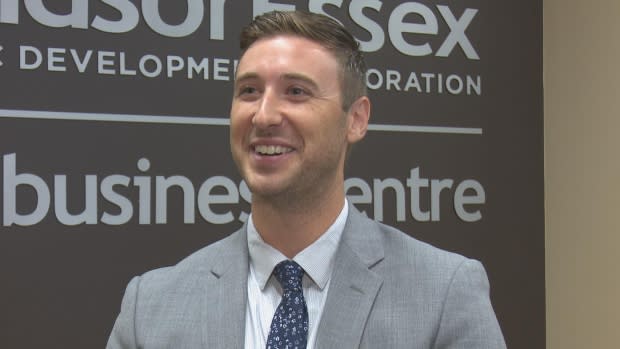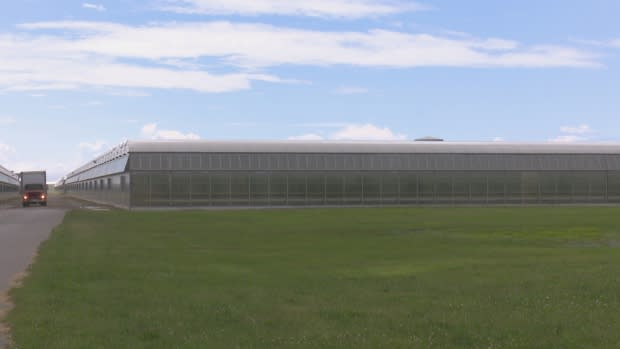Windsor-Essex could soon see an influx of Dutch greenhouse tech companies
An influx of Dutch greenhouse technology companies want to expand their operations to the Windsor-Essex region.
That's according to Matthew Johnson, director of business attraction for the WindsorEssex Economic Development Corporation, who was part of a group of local delegates who attended an "agri-tech" conference in the Netherlands this past June.
"We know that the agricultural tech sector in the Netherlands is above and beyond anywhere else in the world," he said. "So we wanted to learn from them and see where we can plug in some of the agri-tech that's coming out of the Netherlands into our local economy here."
According to Johnson, the trip saw the delegates meet with 22 Dutch companies that serve "a lot of growers here." He added that five of those companies are expected to come to the Windsor-Essex region for a site visit.
"They know that there's a strong customer base here for them. We just hosted a company [on July 18] that is very interested in setting up a sales and distribution office. But what they're also doing is bringing over their technicians ... who well help service the greenhouse industry here."
"There's a number of growers that said, 'We already get a lot of our supplies from the Netherlands — but we just ship it in. We don't have the knowledge here. We don't have the expertise. If something goes down, it takes a while for parts to get here."
What did they learn?
The Windsor-Essex delegates spent five days in the Netherlands, centered around the GreenTech conference.
According to Johnson, one of the biggest things he learned was about "light and odour abatement by-laws and regulations in the cannabis industry," which are being tested by municipalities in the Netherlands.
"We learned there's screenings that can be put up. There's a number of different odour technologies that can help reduce the smell for residents living around the facilities," he said.

Though cannabis consumption is legal at the federal level in the Netherlands, it's still illegal to grow cannabis.
"There's this massive illicit market in the Netherlands where the government essentially turns a blind eye to these cultivation opportunities," Johnson said. "It's a backdoor opportunity for retailers of cannabis to purchase this from a secret supplier. From that secret supplier, it's sold to consumers, tourists, residents that live in the community."
However, since growing cannabis in the Netherlands is illegal, delegates were unable to tour any of the country's cultivation facilities. Instead, they spoke with consultants to learn how to fend off odour and light pollution.
"They're using different types of filtration systems in the facilities. A lot of this takes the odour and reduces it as it's pushed out into the environment," he said.
According to Johnson, the major difference between cannabis operations in Windsor-Essex and the Netherlands is that the latter country has facilities which are specifically designed for growing cannabis.
He adds greenhouses here at home tend to be "retro-fitted" for growing cannabis, since they were originally designed for growing other types of plants.

The development of Kingsville's greenhouse sector has been massively influnced by what's happening in the Netherlands, according to town mayor Nelson Santos. He also attended the GreenTech conference in June.
"Part of our visits there were also business-to-business meetings, trying to identify potential investors to come to our region to help support the greenhouse sector that represents 75 to 80 per cent of all North American vegetable growers," said Santos.
The Netherlands has been specializing in "self-reliant" greenhouse communities, since the country doesn't have access to natural gas like Windsor-Essex. The result has been Dutch farmers teaming up to invest in geothermal technologies, which produces power without needing external sources.
"They're even drawing other attention and bringing other industry within that sector," said Santos, adding that Google recently invested $1B to build database centres in the Netherlands because of the country's sustainable energy sources.
Santos said "blackout curtains" were one of the "agri-tech" advancements that really stuck with him following the trip. The curtains were automated and installed on the sides and tops of greenhouses — aimed at keeping the sky dark during nighttime.
"If you look at the astronomers' satellite images of the light being emitted at night, you can see big pockets in Holland — but also you'll see the Leamington and Kingsville area have a significant impact on that night sky," Santos said.
"We're hoping that as we introduce more regulations on being dark sky-complaint, you'll start to see that impact overnight on how it's benefited our area."

